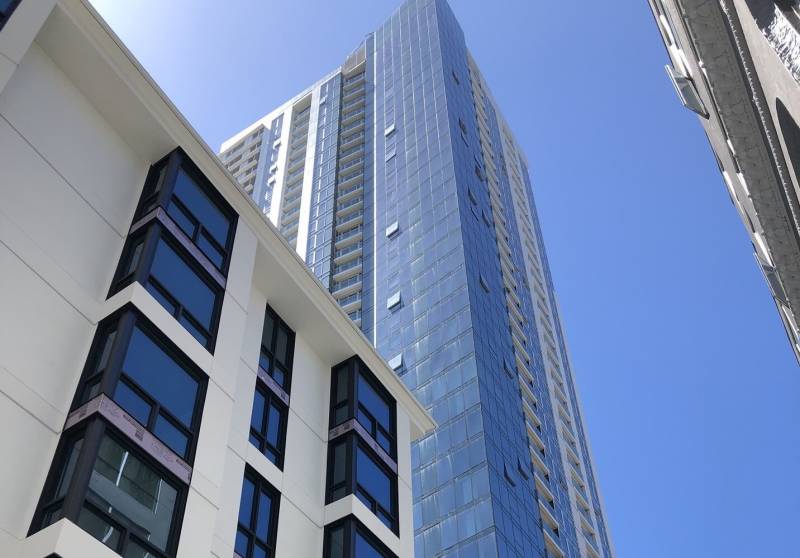The Jasper is a high-rise, luxury apartment building in San Francisco's Rincon Hill neighborhood near The Embarcadero. It’s got a sleek industrial facade, all frosted glass and tall white columns. Inside, there’s an on-site movie theater, pool and gym.
A one-bedroom apartment here costs more than $4,000 a month — at least, for now.
Like many other high-end apartment complexes in San Francisco, the Jasper's management is offering up to one month of free rent to prospective tenants right now because of the weakening market.
"If you go on Craigslist, you'll see at least four weeks — often six weeks — free rent," said Bay Area property manager and landlord Carlos Carbajal. "I've never seen anybody giving that much free rent as an incentive the whole time I've lived here, since 2003."
According to the rental website Zumper, the average cost for a one-bedroom apartment in San Francisco has dropped 5.4% over the past month.


